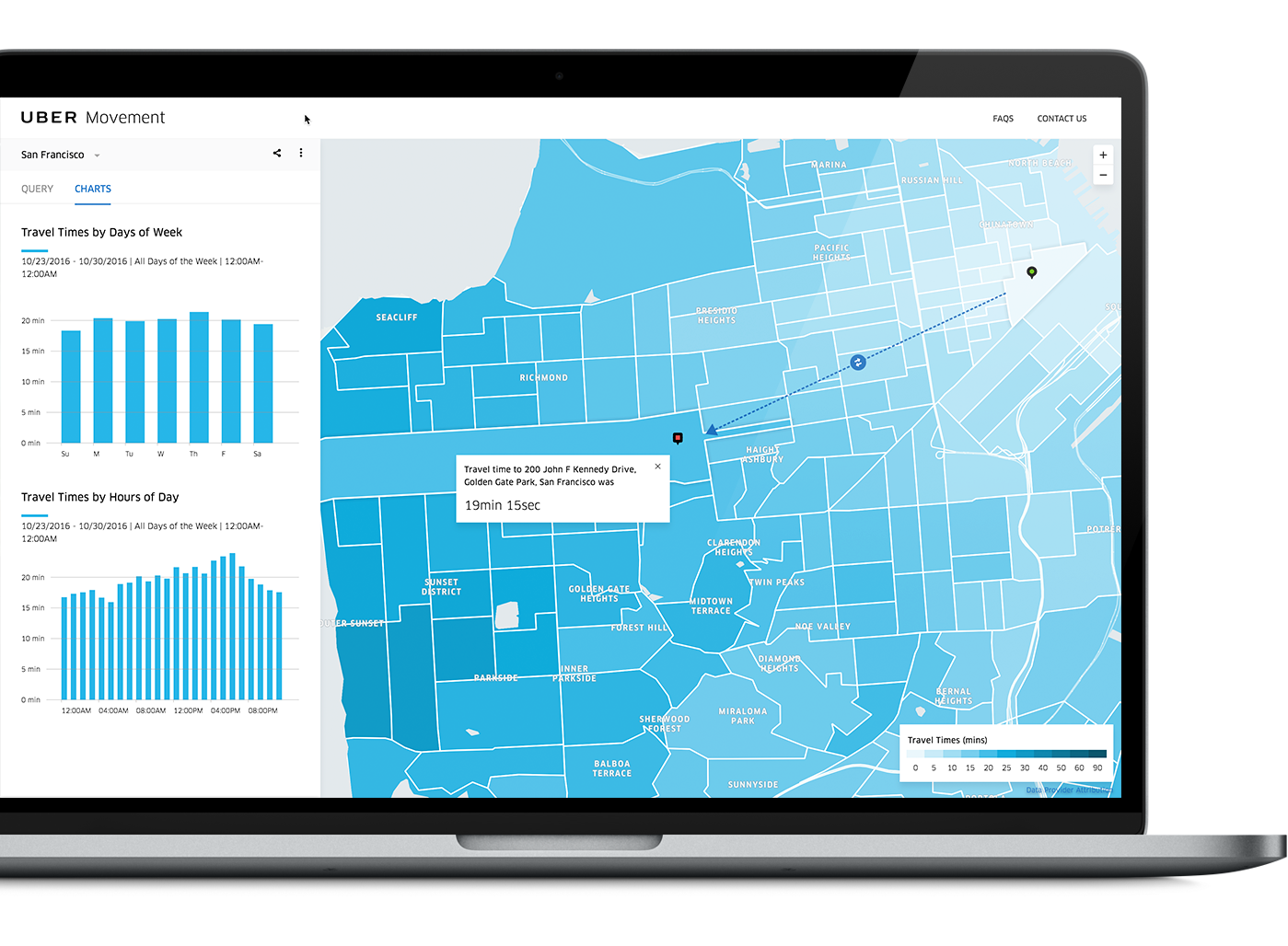 EMERGING TECH
EMERGING TECH
 EMERGING TECH
EMERGING TECH
 EMERGING TECH
EMERGING TECH
In a decided change of direction for a company that doesn’t usually play nice with local governments, Uber Technologies Inc. has announced its intention to share its traffic data with cities around the world.
The program, dubbed “Uber Movement,” will see the ridesharing giant sharing data with local authorities starting in the cities of Manila, Sydney and Washington D.C., with an additional dozen cities to be added by the end of February.
Data made available by Uber does not include driver details but does offer data that local officials could use to help cut down on commute times and improve traffic flow. It could allow them to compare traffic at different times of the year or in certain parts of the city during events.
“One of the things that has been frustrating to cities is that they see this as a service that’s making use of public right of way, public facilities, and isn’t necessarily giving back on just basic openness,” National Association of City Transportation Officials Executive Director Linda Bailey told The Washington Post. “It’s definitely a step in the right direction but there’s still a ways to go for cities to feel like they’re getting more than basic information.”
While on paper the program sounds like an honest act of benevolence by Uber, the program may be more of an attempt to win over cities that have often been against Uber operating within their borders, including attempts to ban the company and even sue them in court.
That aside the data will be of great assistance to city planners who are looking at reducing congestion on urban and suburban roads That data can be difficult to come by without costly traffic studies.
Even taken as a public relations exercise, the program may help endear Uber to the municipalities that have embraced the service, and it might even help ease relations with those that have stood against the democratization of transport in favors of traditional taxis.
Support our mission to keep content open and free by engaging with theCUBE community. Join theCUBE’s Alumni Trust Network, where technology leaders connect, share intelligence and create opportunities.
Founded by tech visionaries John Furrier and Dave Vellante, SiliconANGLE Media has built a dynamic ecosystem of industry-leading digital media brands that reach 15+ million elite tech professionals. Our new proprietary theCUBE AI Video Cloud is breaking ground in audience interaction, leveraging theCUBEai.com neural network to help technology companies make data-driven decisions and stay at the forefront of industry conversations.